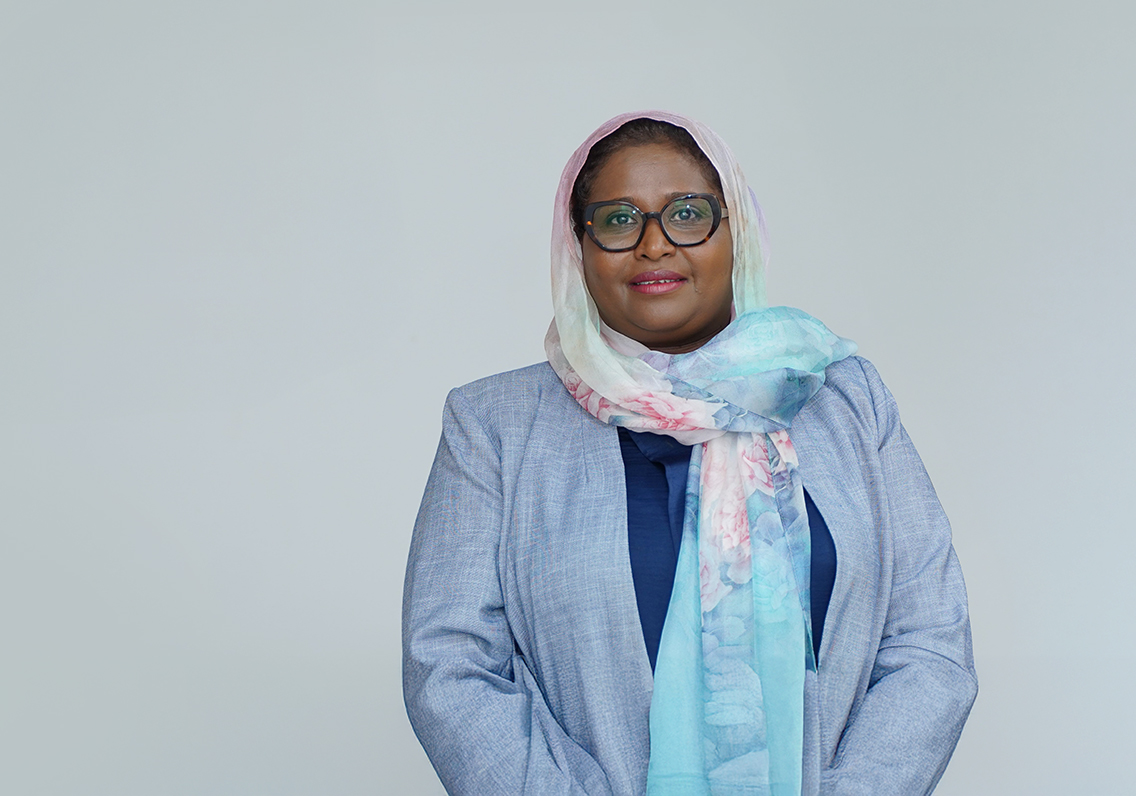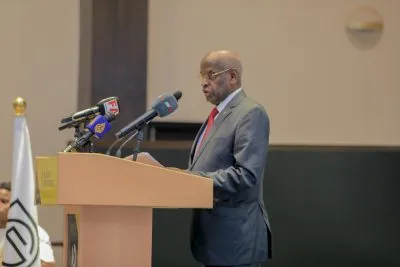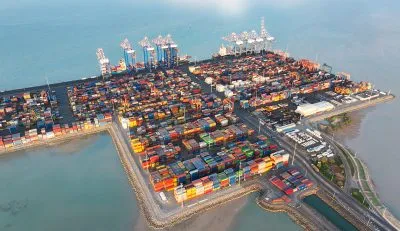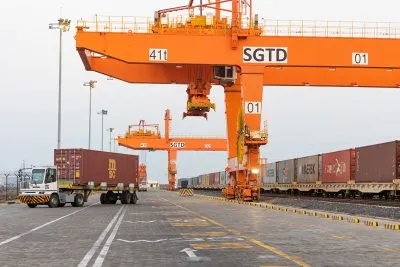What are the major digital projects planned for 2025?
In 2025, several digital projects will be key milestones for Djibouti. The approval of the Digital Code will modernise the legislative framework for the digital sector, encourage investment and guarantee an environment conducive to innovation.
The adoption of the Startup Act will also mark a major step forward by offering startups a more attractive fiscal and administrative framework, as well as simplified access to financing. We are also launching Ecole 42 in Djibouti, a world-class training programme for digital professionals. Thanks to its innovative curriculum accessible to all, it will train a new generation of local talent adapted to the needs of the market.
In terms of infrastructure, we are making progress on the Smart Port – digitising port logistics.
Finally, we are accelerating the transition to a digital government with new online services for citizens and businesses. Facilitating digital payments is also essential, as it is a key element in structuring a digital economy and streamlining transactions.
Which sectors are already benefiting from the digital transformation?
Digital technology has already transformed several sectors. Fintechs and mobile payment solutions facilitate financial inclusion and have accelerated the digitalisation of the financial sector.
Trade and logistics are also benefiting from digital innovations, particularly with the optimisation of stocks and the automation of processes.
Other sectors have yet to accelerate their transition. Education needs to integrate more digital tools, and healthcare could benefit from telemedicine and the digitisation of medical records.
Smart agriculture, which uses data to optimise water and crop management, also remains under-exploited.
What role does Djibouti Telecom play in the overall digitalisation of the country?
Djibouti Telecom is a key player in our digital sovereignty. Its role goes far beyond telecoms services: it structures the country’s infrastructure, ensures regional connectivity and supports the digital transformation. With its network of undersea cables, Djibouti Telecom connects Africa, Europe, the Middle East and Asia, thus enhancing the country’s appeal as a digital hub.
The opening up of the telecoms market is necessary, but it must be gradual and well supervised. The partial opening of Djibouti Télécom’s capital is a first step, which should make it possible to attract strategic partners and modernise the incumbent operator.
This initiative also provides resources to develop infrastructure while guaranteeing the sustainability of Djibouti Telecom.
The arrival of AfriFiber, which specialises in internet and data services, marks a first step in this opening up of the market and diversifies the offer. This competition is forcing Djibouti Telecom to innovate and improve its services, while maintaining a balance on the market.
Djibouti has first-rate international connectivity, but access costs remain high for individuals and SMEs. Are there any measures planned to improve accessibility?
Accessibility is a priority. We are working on several fronts: regulatory reform with the Digital Code, to encourage competition and diversify offerings; tax incentives to push operators to offer more affordable subscriptions and expand coverage and finally, the establishment of free internet access points in schools, government offices and co-working spaces, to reduce access inequalities.
Is full national network coverage realistic in the short term?
The expansion of fibre optics and the mobile network is ongoing. We have an ambitious goal: to achieve almost total coverage by 2026. To achieve this, we are combining different technological solutions, including satellite networks and terrestrial infrastructures to ensure more equitable access to the internet throughout the country.
Several African countries have set up investment funds and incubators to support their tech start-ups. Is Djibouti planning similar initiatives?
We have launched a fund dedicated to start-ups and innovative companies, which will serve as leverage to attract private and international capital. We have also strengthened the Centre for Leadership and Entrepreneurship (CLE) with an eight-month incubation and acceleration programme for young Djiboutian and African companies.
Thanks to this support, start-ups such as Medyc, specialising in e-health, and Sahaal Ride, which is revolutionising urban mobility, have been able to structure their development and accelerate their growth.
Medyc facilitates access to care via telemedicine and an innovative programme for diabetic patients, while Sahaal Ride offers a digital alternative to traditional transport, with the ambition of regional expansion.
What are the main obstacles to the development of digital entrepreneurship in the country?
The main challenges remain access to funding, the lack of advanced digital skills and the visibility of start-ups on the international scene. We are working to address these by facilitating access to credit for young companies, integrating more digital training into education, and encouraging collaborations with foreign incubators and investors.
Which administrative services will be prioritised for digitalisation this year?
In 2025, we are focusing on several major digitalisation projects. The e-Cabinet will optimise government management, the e-Permit will simplify the granting of building permits, and the e-Tax will modernise tax declaration and payment. The national digital identity will serve as the basis for many administrative services.
These initiatives are part of a multi-year programme aimed at modernising all public services by 2030.
Does Djibouti attract international investors in the digital sector?
Yes, and this interest is growing. We have signed several partnerships with cloud giants and data centres to strengthen our digital sovereignty. We have also entered into agreements with financial institutions to develop fintech and financial inclusion.
How do you see Djibouti’s digital future?
Djibouti is at a major turning point. Thanks to structured projects, increased support for start-ups and a modernised regulatory framework, we are building an inclusive and competitive digital economy. We remain open to collaboration and investment, convinced that digital technology is an essential driver of development for our country and for the whole of Africa.
Want to continue reading? Subscribe today.
You've read all your free articles for this month! Subscribe now to enjoy full access to our content.
Digital Monthly
£8.00 / month
Receive full unlimited access to our articles, opinions, podcasts and more.
Digital Yearly
£70.00 / year
Our best value offer - save £26 and gain access to all of our digital content for an entire year!

 Sign in with Google
Sign in with Google 



